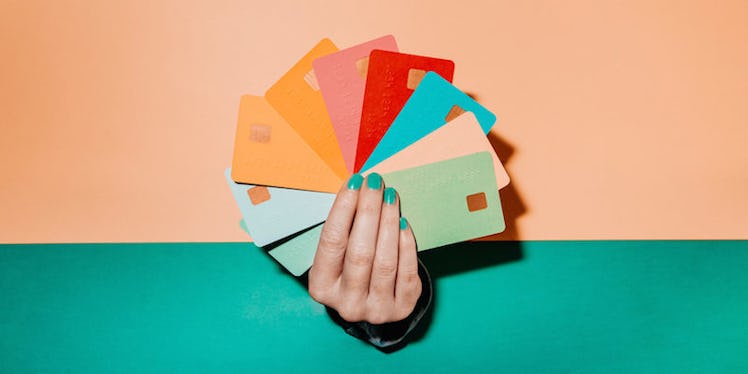
These 5 Habits Make It Way Too Easy For Hackers To Steal Your Credit Card Information
Credit cards. We use them all the time, except in random boutiques that only accept cash.
Being addicted to our credit cards can be a good thing, as you can use the card to increase your credit score and keep track of your expenses.
But credit cards come with a major draw-back: they can easily be hacked. The Federal Trade Commission's statistics show that 9 million people become victims of credit card theft and identity theft each year.
If you don't plan to retire your credit cards and start using cash in the future, you need to know how to protect yourself from credit card fraud.
Why millennials are prone to credit card fraud
First, Generation Y is not really worried about credit card fraud.
The same Federal Trade Commission reports that millennials are the demographic group second-most prone to identity theft. Another study shows that 22% of young millennials don't even realize they've been victims of credit card fraud until the creditors contact them.
These numbers show that millennials might be tech savvy and careful where their money goes but they are not careful enough when it comes to banks and credit cards. Millennials must be doing something that puts their sensitive data in danger.
This is both bad and good news: while it's not pleasant to find out you are virtually offering your hard-earned money to thieves, you can identify and prevent the habits that increase your risk to become a credit card fraud victim.
1. You overshare.
As millennials, we are used to sharing. We've created the amazing sharing economy.
But sharing is not caring when it comes to your credit card. Many people actually post pictures of their credit cards on Instagram. This is obviously a no-no.
Sharing is not caring when it comes to your credit card.
To prevent fraud, never share your bank account number or passwords. Not even your close friends or relatives have to know this information.
2. You connect to public WiFi for online banking.
Have you ever checked your bank account using public WiFi?
Chances are you have, at least once.
According to the US Department of Homeland Security, 72% of millennials have done this.
What happens when you check your bank account from an unprotected WiFi? Your money can fall into the hands of a hacker.
To prevent anyone from accessing your data via WiFi, embrace the simple practices that allow you to safeguard your online presence, like using a VPN and never entering any passwords when you are using WiFi.
3. You are using debit cards instead of credit cards.
1 in 3 Americans under 30 don't have a credit card. This is because of tight regulations on credit cards and the general anxieties we have about economic recessions.
While not having a credit card helps you spend exactly what you have (instead of going into debt), it also puts you in danger.
If your debit card is stolen, the thief can take the money from your bank account. Getting your money back is going to take a lot of time -- and that's assuming you're lucky enough to get it back. More often, people never see their money again.
To prevent this from happening, check your bank statements often and research any strange payment you can't remember, even if it's as small as $1.
4. You use your smartphone to shop online.
Smartphones are great and you can even do your shopping on them.
Over 60% of millennials shop every day on their mobile device.
While this makes shopping very convenient, it also increases the fraud risks.
Mobile technology is not as developed as desktop and most smartphone users don't have an antivirus on their phone.
Moreover, there is the public WiFi issue we covered in the previous point, so conducting transactions via mobile phone is not a good idea.
5. You are too open.
Most millennials share their Netflix passwords with their families and friends. It's because we're quick to help a friend in need.
But it is not a huge step from sharing a password to sharing card numbers. Have you ever given a friend your card number so they can shop online even though their card isn't working, or perhaps because they've misplaced it?
Don't do it.
Opening a joint account or letting a family member know your card information increases your risk of becoming a victim of credit card fraud. Keep your credit card information only for you!